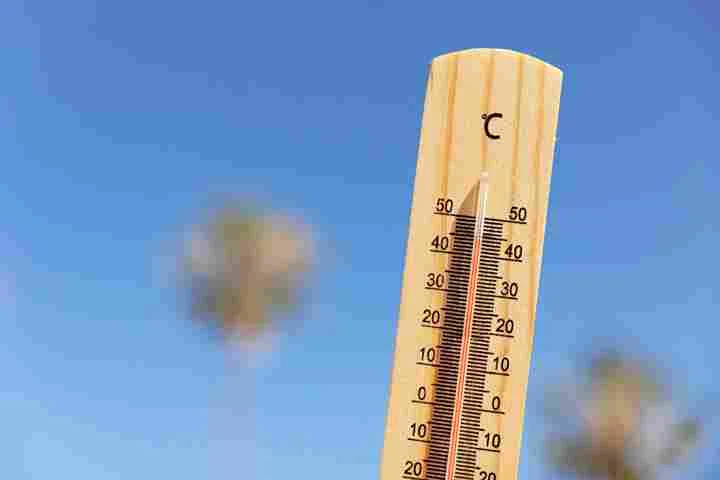Harh (ਹਾੜ੍ਹ,ہاڑ), the fourth month after Jeth, falls in June and July (mid-June to mid-July). It is known as the hottest month of the year. The temperature is normally very high in June. People need to be hydrated and adopt safety measures to avoid heat strokes. The temperature came a bit down in late June due to the rains.
Children and young boys enjoy water sports and swimming on hot days, a sigh of relief in hot weather. People prefer to visit water parks, lakes, and the seaside. They also do fishing and boating.
Farmers ensure the good irrigation of crops like rice, sugarcane, maize, etc., since they need enough water for good growth. They also make adequate arrangements for the next monsoon season to avoid any damage to their crops.
Harh (ਹਾੜ੍ਹ,ہاڑ) Calendar 2025

Key Events of ਹਾੜ੍ਹ (ہاڑ)
Some days of this month are valuable for the Sikh community. 2 ਹਾੜ੍ਹ (ہاڑ) is significant for the martyrdom of Guru Arjan Dev Ji, Sri Akal Takht was also formed on 18 of this month, and the birth of Guru Har Gobind Ji is also celebrated on 21 ਹਾੜ੍ਹ (ہاڑ). Other important days are listed below in the tables.
Want to know about Puranmashi Dates this year? Check out the Puranmashi 2025 Dates.
Significant Dates of ਹਾੜ੍ਹ (ہاڑ)
| Event | Gregorian Date | Day |
|---|---|---|
| Sangrand | 15 June 2025 | Sunday |
| Puranmashi | 10 July 2025 | Thursday |
| Masya | 25 June 2025 | Wednesday |
| Panchmi | 30 June 2025 | Monday |
| Dashmi | 5 July 2025 | Saturday |
Gurpurab Dates of ਹਾੜ੍ਹ (ہاڑ)
| Gurpurab | Gregorian Date | Day |
|---|---|---|
| Jor Mela Gurudwara Shri Reetha Sahib | 11 June 2025 | Wednesday |
| Bhagat Kabir Jayanti | 11 June 2025 | Wednesday |
| Janam Diwas Guru Hargobind Ji | 12 June 2025 | Thursday |
| Shaheedi Baba Banda Singh Ji Bahadur | 25 June 2025 | Wednesday |
| Maharaja Ranjit Singh Death Anniversary | 29 June 2025 | Sunday |
| Sirjana Diwas Shri Akal Takht Sahib | 2 July 2025 | Wednesday |
| Miri Piri Diwas | 5 July 2025 | Saturday |
| Shaheedi Bhai Mani Singh Ji | 9 July 2025 | Wednesday |

Interesting Facts about Harh (ਹਾੜ੍ਹ,ہاڑ)
1. Peak of the Monsoon & Relief from Heat:
- ਹਾੜ੍ਹ (ہاڑ) marks the arrival of heavy monsoon rains, bringing relief from the scorching summer heat. The dry, cracked fields finally get soaked, and farmers welcome the season with joy as they prepare for rice planting.
_________________________
2. . Paddy (Rice) Transplantation Begins:
- This month is crucial for agriculture, especially in Punjab, as it is the time when paddy transplantation is in full swing. Farmers work knee-deep in water, carefully planting rice seedlings that will grow into golden fields in the coming months.
_________________________
3. Buzzing of Insects & Frogs:
- With rainwater collecting in fields and ponds, ਹਾੜ੍ਹ (ہاڑ) is the season of buzzing insects and croaking frogs. The rhythmic sound of frogs in the evening is nature’s own monsoon melody, adding to the season’s charm..
_________________________
4. More Milk, More Dairy Delights:
- With fresh green fodder available for cattle, milk production increases. This means more lassi, malai, paneer, and delicious homemade sweets like kheer! Monsoon evenings often call for a hot cup of tea with crispy pakoras.
_________________________
5. Seasonal Fruits & Vegetables:
- The arrival of monsoon means fresh seasonal produce! People enjoy juicy fruits like jamun (black plum), falsa, and litchi, while vegetables like bhindi (okra) and tinde (round gourd) dominate home-cooked meals.
_________________________
7. Rivers & Canals Overflowing:
- The rivers of Punjab, such as the Sutlej and Beas, often swell with rainwater during Harh. While this benefits agriculture, occasional floods can also occur, reminding people of nature’s power.
_________________________
Conclusion
To conclude we can say that a Punjabi year’s hottest month is ਹਾੜ੍ਹ (ہاڑ). Despite the challenges of the high temperatures, it is a busy time for farmers as they focus on irrigating their crops. The month also brings moments of joy for water lovers. This month is religiously significant to the Sikh community.
Check out the Sawan Calendar 2025 to know the exact desi dates of upcoming month.

